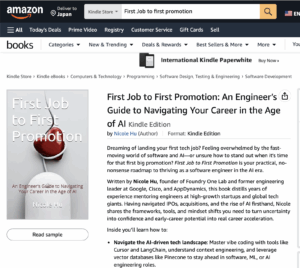A few years ago, I worked with a junior engineer who was a classic introvert—quiet, reserved, and reluctant to speak up. In meetings, he rarely engaged. When tasks were assigned, he nodded silently, never asked questions, and gave the impression he understood everything. But as deadlines approached, his tech lead discovered he was struggling. He started asking very basic questions late in the development cycle, indicating he didn’t fully grasp the task requirements. His delivery was consistently behind schedule, and feedback from the tech lead was increasingly negative. There was growing concern that he was falling behind.
But if you think about it, this engineer had passed the Google interview bar—an achievement that signals strong technical skills. Clearly, there was talent beneath the surface. I believed in his potential. What he needed wasn’t more pressure or criticism—he needed the right kind of support.
Step-by-Step: How We Helped Him Turn Things Around
Instead of letting the situation escalate or writing him off, I stepped in with a plan tailored to his personality and challenges. Here’s what we did:
- Changed His Tech Lead:
Sometimes, a different dynamic is all it takes to unlock someone’s potential. I paired him with a new tech lead who had a more collaborative and patient communication style. The goal was to give him a fresh start with someone who could better support his learning style. - Had a Candid Conversation:
I invited him for a one-on-one conversation where I shared my observations and concerns—his lack of communication, delays in delivery, and signs of confusion. But more importantly, I emphasized that I believed in him. I made it clear that improvement was expected, but that I would support him every step of the way. - Built a Clear, Structured Plan:
Together with the new lead, we broke down his tasks into smaller, manageable components, each with specific deliverables and deadlines. This eliminated ambiguity and gave him a clear roadmap for success. - Adapted the Approach to Suit His Personality:
Recognizing that he was shy and often overwhelmed by meetings, I suggested simple strategies: write down questions ahead of time, rehearse points he wanted to make, and follow up in writing after meetings. This helped reduce the pressure and gave him confidence to participate. - Consistent Check-Ins:
Regular progress reviews kept him accountable and allowed us to course-correct early. Feedback was framed constructively, and I made sure he knew what he was doing well, not just what needed improvement.
The Result: From Overlooked to Outstanding
Within just a few months, there was a noticeable shift. He started completing tasks on time, asked the right questions earlier, and gained the trust of his team. He even started to take initiatives, willing to take ownership. By the following performance review cycle, he was considered a strong contributor. On his second try, he earned a well-deserved promotion.
This wasn’t a story of sudden genius. It was a story of structured support, consistent mentorship, and a personalized approach to development. And it’s proof that with the right guidance, anyone can turn things around.
The Bigger Lesson: Growth Comes from Support, Not Just Skill
So what can you learn from this story?
The key takeaway is this: struggling in your early career doesn’t mean you’re not capable. It simply means you may need better tools, clearer guidance, and a support system that helps you thrive. Here’s how you can apply this mindset to your own journey:
1. Don’t Be Afraid to Ask Questions
If you’re unclear about something, speak up early. Asking basic questions doesn’t make you look weak—it shows you’re proactive and invested in getting things right. If speaking up in meetings feels intimidating, prepare your questions in advance and consider sending a follow-up message after the meeting.
2. Seek Mentorship
A good mentor can be a game-changer. Look for someone who sees your potential and is willing to guide you. Share your challenges honestly and ask for specific advice—whether it’s on communication, coding practices, or career planning.
3. Welcome Feedback as Fuel for Growth
Feedback isn’t failure—it’s information. Take it as a roadmap for improvement. Reflect on what’s shared with you and act on it. Don’t take it personally; take it purposefully.
4. Break Down the Work
If a project feels overwhelming, ask your lead to help break it down into smaller steps. This makes progress easier to track and reduces the chance of misunderstandings or missed expectations.
5. Trust That Growth Takes Time
No one becomes a star performer overnight. The transformation of the engineer in the story took time, coaching, and patience. Give yourself grace, but also commit to continual improvement.
Practical Steps You Can Take Now
To make these lessons actionable, here are five things you can do starting today:
- Communicate Early and Often: If you’re not sure about a task, say something like, “Just to confirm, is the goal [X] by [Y date]?” This helps clarify expectations and builds trust with your team.
- Ask for Milestones: Break big tasks into weekly goals. This keeps you focused and gives your lead an easy way to provide input.
- Identify a Growth Ally: Whether it’s your manager, a senior teammate, or someone from another team, find someone you can check in with regularly for feedback and advice.
- Create Your Own Feedback Loop: Keep a weekly journal of what you accomplished, what challenged you, and what you learned. This helps you reflect and stay focused.
- Celebrate Small Wins: Finishing a task on time, speaking up in a meeting, or successfully debugging a tricky issue—these are wins. Acknowledge them and use them to build confidence.
Just Like Code: Growth Needs Iteration
Think of your career development like a CI/CD pipeline. You don’t wait until the end to test everything—you build incrementally, test frequently, and improve with each iteration. Similarly, regular feedback and support help you catch challenges early and grow continuously.
Your Turn to Shine
If you’re feeling uncertain or overwhelmed, know this: your potential isn’t defined by your current struggle. You may simply need a mentor who sees you, a plan that fits your learning style, and the encouragement to keep moving forward. Just like the team member in the story, your path to promotion starts with small, consistent steps.
That’s where 0to1Advisor comes in.
Drawing on my extensive industry experience in engineering leadership and mentoring, I help early-career engineers grow through personalized coaching, practical guidance, and real-world insights. Whether you’re navigating your first job or preparing for your first promotion, 0to1Advisor is here to help you build momentum and confidence.
Visit 0to1Advisor.com to learn more.
Don’t wait for someone to hand you a roadmap—start creating your own. Ask a question. Set a goal. Seek out support. You have what it takes to thrive—and with the right guidance, you’ll get there faster.




